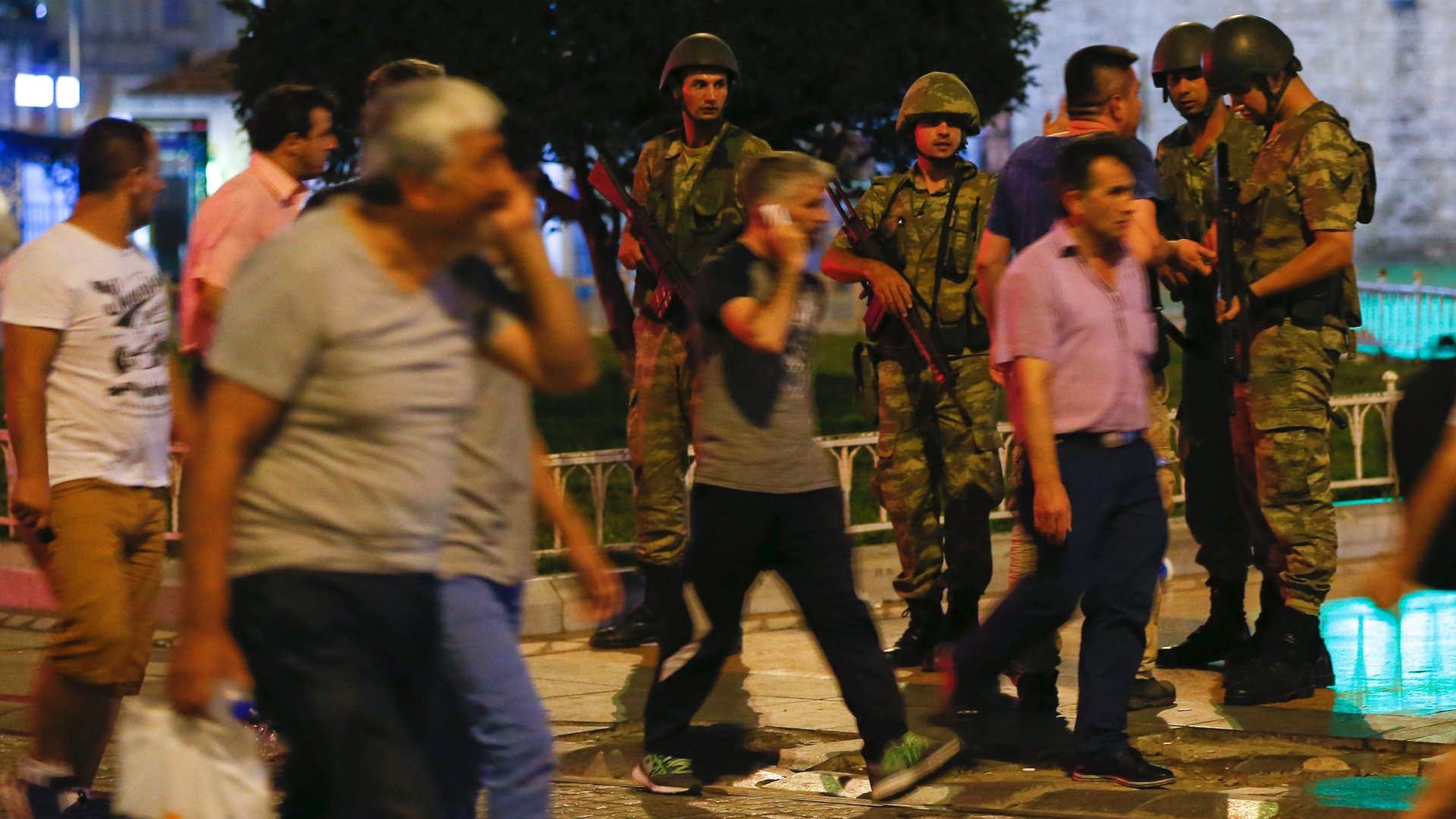Turkey blocked three social-media giants and its internet traffic fell by half
As reports of an attempted military coup came in late Friday (July 15), Turkish internet users began to have trouble reaching a range of websites and services. Around 11.04 pm local time, Turkey Blocks, a Twitter account that monitors the country’s internet activity, noted that three tech giants—Facebook, Twitter and Youtube—were all unavailable.


As reports of an attempted military coup came in late Friday (July 15), Turkish internet users began to have trouble reaching a range of websites and services. Around 11.04 pm local time, Turkey Blocks, a Twitter account that monitors the country’s internet activity, noted that three tech giants—Facebook, Twitter and Youtube—were all unavailable.
Twitter’s public policy account tweeted:
However, past midnight local time, some sources in Bursa and Istanbul told Quartz they still had spotty access to Facebook and Twitter. President Recep Tayyip Erdoğan was interviewed on CNN Türk via Facetime, Apple’s video-calling app, and urged the people of Turkey to take to the streets to defend “Turkish democracy.”
Some citizens—most likely using virtual private networks (VPNs) to route their connections through servers in a different country, and thus avoid the government’s blocking mechanisms—broadcast a series of Facebook Live videos of people convening in public spaces. With these big sites down, many people turned to Whatsapp; the messaging service reportedly has not gone offline the entire time.
The disruptions caused a big drop in Turkey’s total internet traffic, according to CEO of CloudFlare, a US-based internet security service.
It’s not uncommon for social media to be blocked in the aftermath of tragedies in Turkey. There was an online blackout during the Istanbul airport attack on July 2. Turkey bans citizens from sharing information in crisis situations, according to the Supreme Board of Radio and Television; the government says it can compromise national security.
While social media in Turkey remain unstable, the US State Department has recommended that people communicate via email, phone calls or SMS.